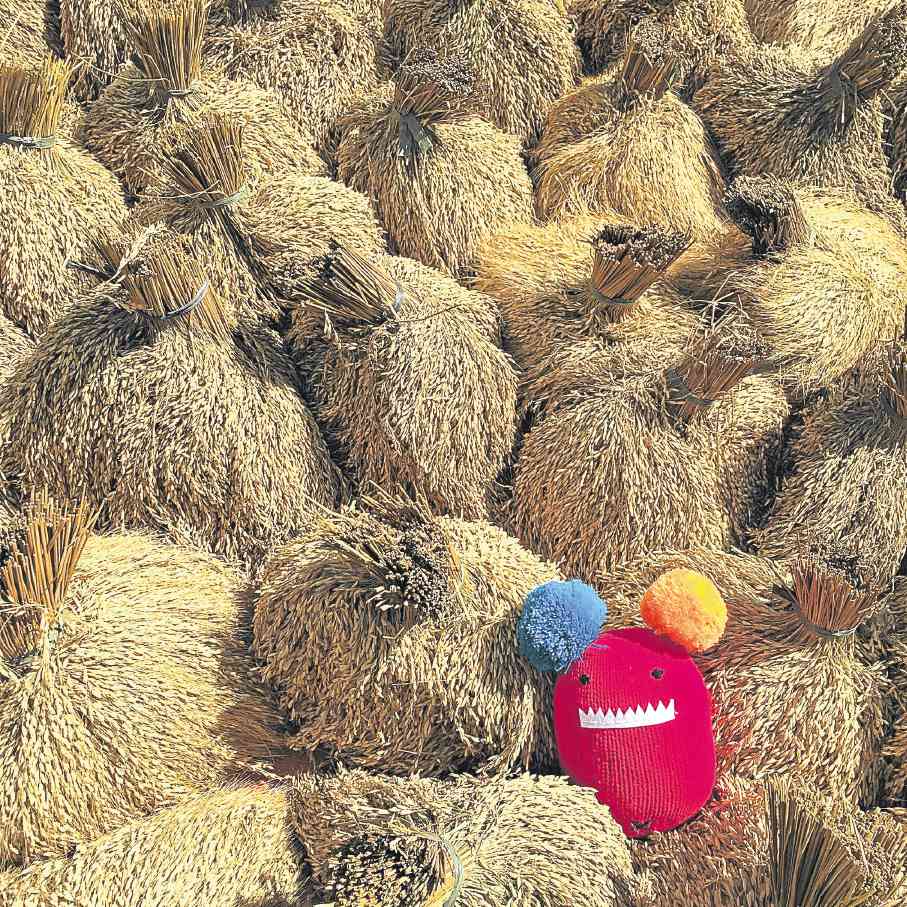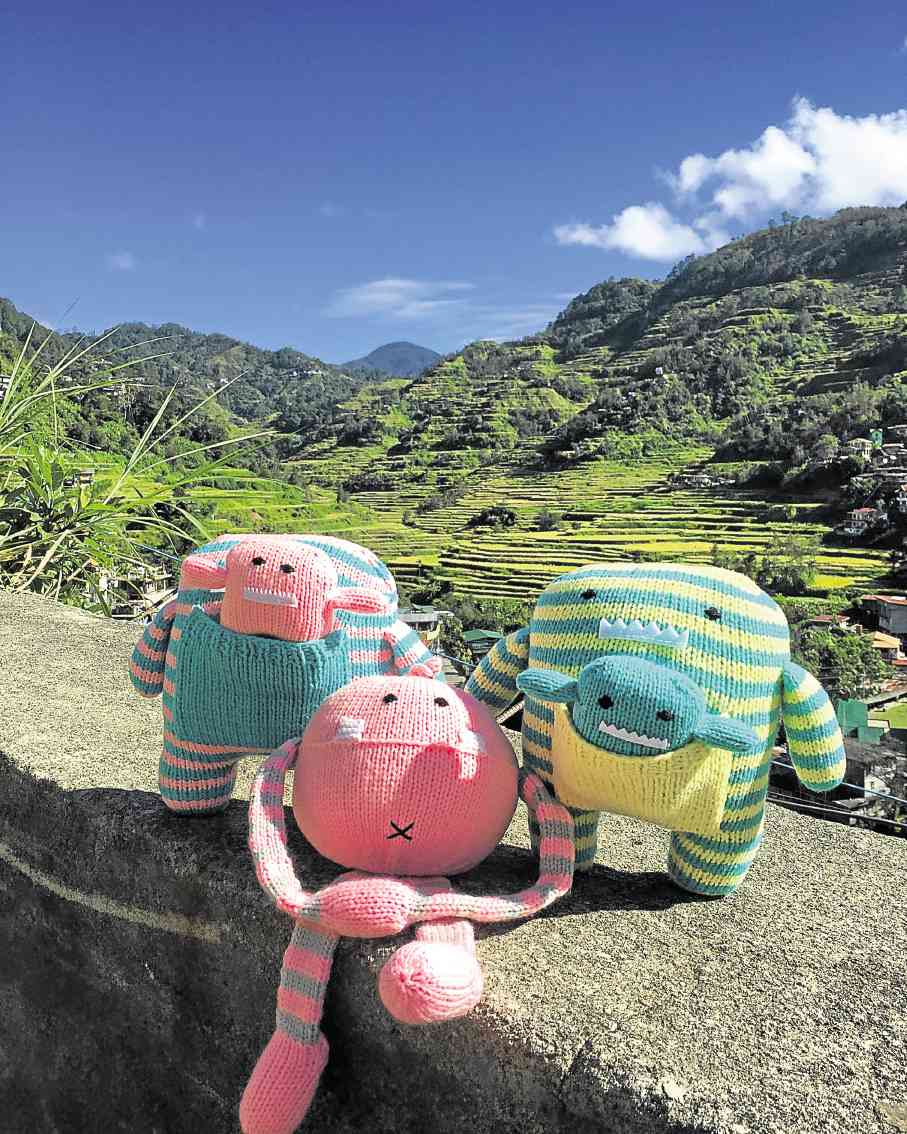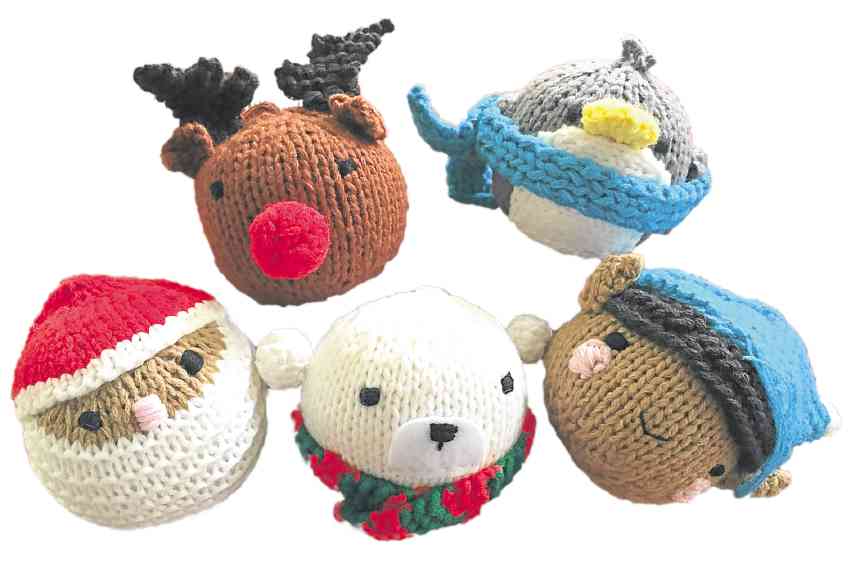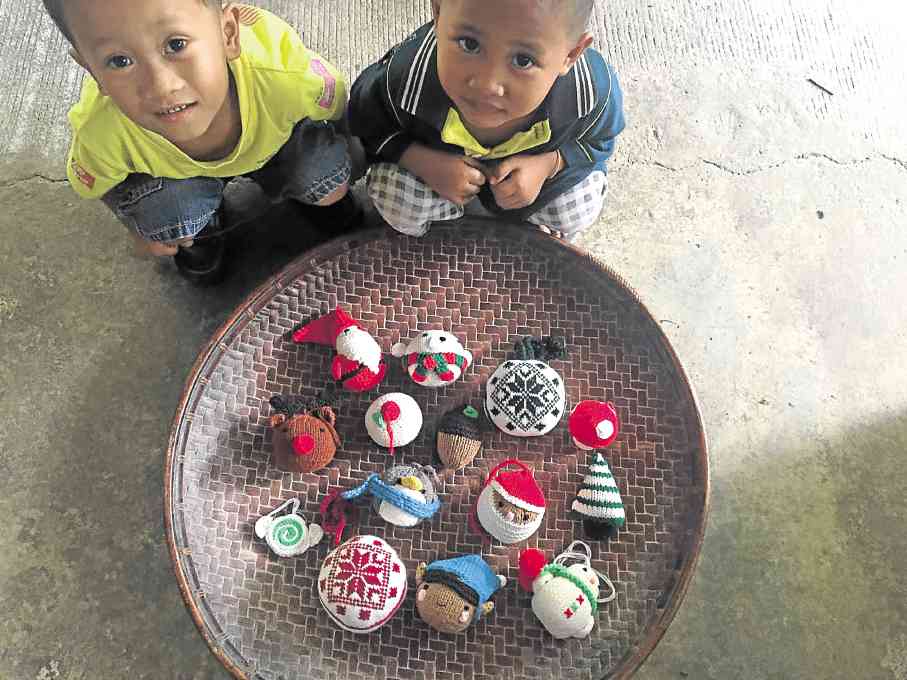Knitting, earning expedition
Somewhere between the Unesco-inscribed rice terraces of Banaue and Hungduan, the passions of one woman converged to make a colorful venture with a farming community.
Candice Reyes-Alipio, an avid knitter and mountaineer, runs Knitting Expedition, a social enterprise that aims to augment the income of women farmers in Uhaj, a little-known village in Ifugao that remains dependent on rice farming.
Located half an hour from the drop-off point for visitors to Banaue, Uhaj itself is not much of a tourist draw.
At best, it is a rest stop for trekkers on their way to Hungduan and a place to sleep for those who seek the comforts of a charming inn in the village.
Work is scarce—if there is any at all, outside farming—and more women are abandoning their ricefields for the big cities, where they often end up as household helpers.
The men, meanwhile, work as laborers or miners in neighboring provinces.
“The purpose of Knitting Expedition is really to keep them in their lands,” Alipio said.
“Rice farming is a dying culture. The younger generation is no longer interested in the ricefields. The younger ones want to move to a different town or work abroad. Most of the parents who send their children to school don’t want them to be farmers,” she added.
In the Philippines, the average age of farmers is 57 years old and agricultural workers comprise the poorest sector of the country’s workforce.
As an independent enterprise, Knitting Expedition continues the vision of Ricefield Collective, a Kickstarter-funded initiative that started the knitting business in Ifugao.
Founded by Filipino-American Meredith Talusan and her friend, Anna Maltz, Ricefield Collective was able to raise $73,045 from its Kickstarter campaign to support the knitters in Uhaj.
When Alipio, who lives in Baguio with her husband, learned about the initiative in 2013, she volunteered to help train the women.
She would go to Ifugao every other month, stay with one of the knitters and teach the women new designs.
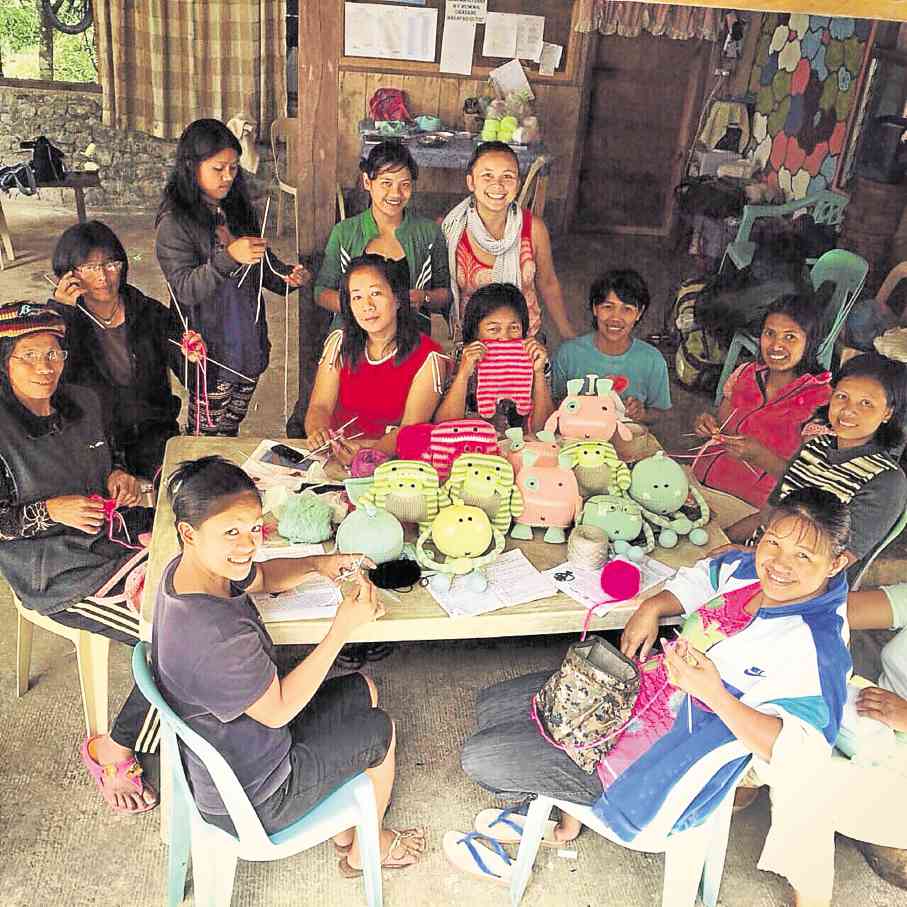
Candy Reyes-Alipio (back row, in red) helps the women of Ifugao use their natural talent for knitting to earn extra income for themselves and their families.
“With Meredith in the United States and Anna in the United Kingdom, I took care of the Philippine production side. Meredith’s cousin arranged logistics. But we were not employed, we would just do it on the side,” said Alipio, a production designer who has worked on movies such as “The Bourne Legacy” and “K’na the Dreamweaver.”
“The women took to knitting naturally because they’re used to using their hands. They’re very dexterous. Their motor skills are much, much better than an average person in the city; they have great eye-hand coordination,” Alipio noted.
Sustainability issues, however, forced Ricefield Collective into an indefinite hiatus after only two collections, and Alipio felt responsible for the women who had come to depend on their supplemental income from knitting hats and scarves.
“The women were waiting and asking. They’re very, very skilled already, and I didn’t want that to go to waste, so I asked Meredith about their plans. I wanted to do something with the women even in the meantime,” Alipio said.
She said Talusan offered for her to continue Ricefield Collective, but the operational expenses and logistical requirements were too big of a challenge. Alipio and her knitter friend, Aurora Suarez, wanted something more sustainable. Thus, Knitting Expedition was born.
Today, some 20 women in Uhaj are back on their porches, knitting lovable little monsters that have made their way to Manila, London, Paris and Santorini.
Two of their most popular products, Louie the Lovebot and Lily the Monster, have appeared in the hit teleserye, “Till I Met You,” where they were used as accessories by the lead character, Iris, played by actress Nadine Lustre.
“TIMY wanted to show a contemporary version of Philippine handicrafts. We watched it together, and they were so excited,” said Alipio.
“When I’m in Ifugao, I show the women our Facebook, our website. I invited some of knitters to the Craft Fair in Baguio last year so they could see the front end of the business. I want them to know the whole process from end to end, that it’s not that easy to sell. But I also want them to feel the satisfaction when people say ‘Wow, ang ganda! (Wow, how beautiful!)’” she said.
Knitting Expedition pays the women on a per-piece basis, with the women deciding the cost of labor for each hand-knitted item. This could range from P50 to P300.
Depending on how fast they work, the women can earn more than the P270 average daily wage in Ifugao.
“What we really want to do is to pay them a fair wage that is worth their time. There’s no pressure for them. We work around the rice-farming season. When they’re not working on the fields, they can still earn. And they get to work at home. I want them to be able to appreciate this kind of life,” Alipio said.
She said the excellent quality of the women’s work had merited inquiries from foreign companies.
Knitting Expedition recently did samples for Question Everything, a top brand for children’s clothing in London.
The group has also made reflective hats for On the Glow, another UK brand. Using German 3M technology yarn, the Ifugao women knitted over a hundred hats for bikers and hikers in Europe.
Locally, Knitting Expedition makes baby bonnets for Baby Mama PH, an online store advocating breastfeeding.
The group is also launching its Christmas collection, which will be available in Common Room in Rockwell and Katipunan, Hey Kessy in UP Town Center, and Co-op in Mandaluyong.
People can also shop from Knitting Expedition’s website, which now has international shipping.
Or, they can visit the group’s booth at the St. James Bazaar, one of the metro’s biggest Christmas bazaars, and maybe meet some of the knitters.
“The women of Uhaj are a very good community to work with. It’s part of the culture of Ifugao: They’re really a community so they help each other knit the way they help each other in the ricefields,” Alipio said.
She said Knitting Expedition planned to venture into home products and wearables next year, with a partnership in the works to get the Ifugao knitters access to top-quality imported yarn.
It has also been invited by a local official to teach the women of Hapao to knit so that like the women of Uhaj, they can have supplemental income as well.
“Knitting is a skill not many people have, so there’s a niche for us. It can evolve into many things. Now we’re making toys and home accessories, but if wearables take off, then there’s a lot more we can do. We may need more women to knit for us,” she said. —Contributed

